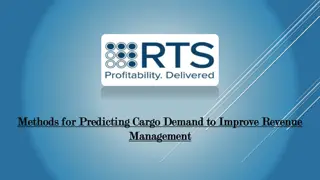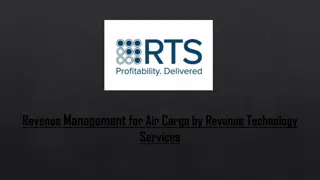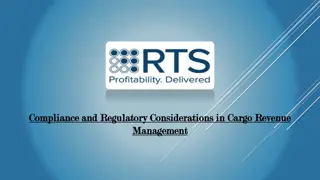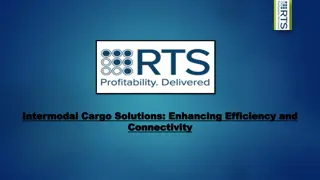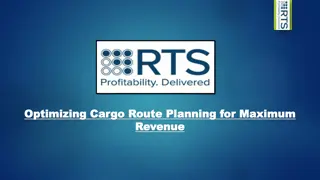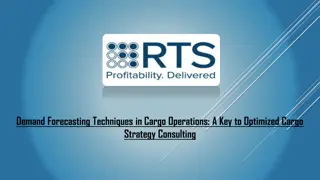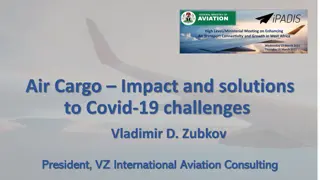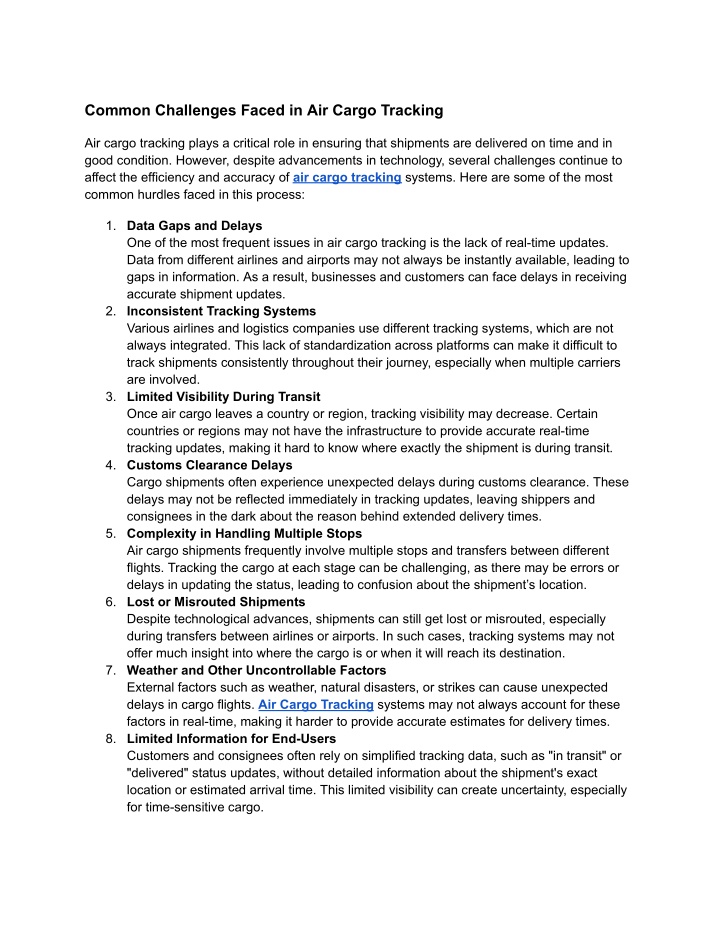
Common Challenges Faced in Air Cargo Tracking
Air cargo tracking is essential for ensuring timely deliveries and maintaining the condition of shipments, but air cargo tracking faces several challenges that can hinder efficiency. One of the most common issues is data gaps and delays, where real-t
Download Presentation

Please find below an Image/Link to download the presentation.
The content on the website is provided AS IS for your information and personal use only. It may not be sold, licensed, or shared on other websites without obtaining consent from the author. If you encounter any issues during the download, it is possible that the publisher has removed the file from their server.
You are allowed to download the files provided on this website for personal or commercial use, subject to the condition that they are used lawfully. All files are the property of their respective owners.
The content on the website is provided AS IS for your information and personal use only. It may not be sold, licensed, or shared on other websites without obtaining consent from the author.
E N D
Presentation Transcript
Common Challenges Faced in Air Cargo Tracking Air cargo tracking plays a critical role in ensuring that shipments are delivered on time and in good condition. However, despite advancements in technology, several challenges continue to affect the efficiency and accuracy of air cargo tracking systems. Here are some of the most common hurdles faced in this process: 1. Data Gaps and Delays One of the most frequent issues in air cargo tracking is the lack of real-time updates. Data from different airlines and airports may not always be instantly available, leading to gaps in information. As a result, businesses and customers can face delays in receiving accurate shipment updates. 2. Inconsistent Tracking Systems Various airlines and logistics companies use different tracking systems, which are not always integrated. This lack of standardization across platforms can make it difficult to track shipments consistently throughout their journey, especially when multiple carriers are involved. 3. Limited Visibility During Transit Once air cargo leaves a country or region, tracking visibility may decrease. Certain countries or regions may not have the infrastructure to provide accurate real-time tracking updates, making it hard to know where exactly the shipment is during transit. 4. Customs Clearance Delays Cargo shipments often experience unexpected delays during customs clearance. These delays may not be reflected immediately in tracking updates, leaving shippers and consignees in the dark about the reason behind extended delivery times. 5. Complexity in Handling Multiple Stops Air cargo shipments frequently involve multiple stops and transfers between different flights. Tracking the cargo at each stage can be challenging, as there may be errors or delays in updating the status, leading to confusion about the shipment s location. 6. Lost or Misrouted Shipments Despite technological advances, shipments can still get lost or misrouted, especially during transfers between airlines or airports. In such cases, tracking systems may not offer much insight into where the cargo is or when it will reach its destination. 7. Weather and Other Uncontrollable Factors External factors such as weather, natural disasters, or strikes can cause unexpected delays in cargo flights. Air Cargo Tracking systems may not always account for these factors in real-time, making it harder to provide accurate estimates for delivery times. 8. Limited Information for End-Users Customers and consignees often rely on simplified tracking data, such as "in transit" or "delivered" status updates, without detailed information about the shipment's exact location or estimated arrival time. This limited visibility can create uncertainty, especially for time-sensitive cargo.
Overcoming these challenges requires more standardized systems, better data integration, and improved infrastructure for real-time updates. Companies like Zipaworld have developed innovative solutions to help address some of these issues, offering real-time air cargo tracking that minimizes delays and improves transparency across the supply chain.





